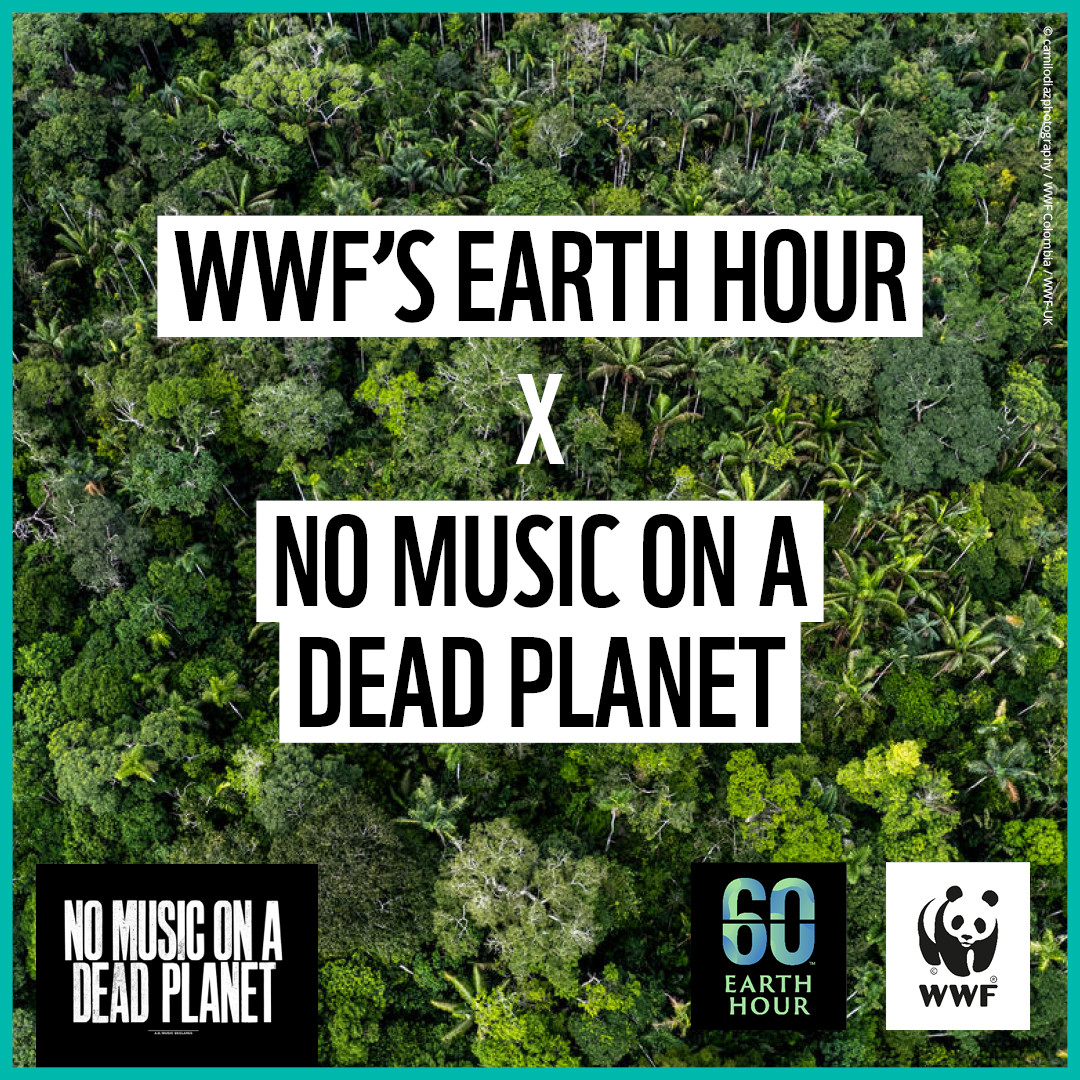
Caity Baser, Sigrid, The Wombats, PVA and Blossoms contribute playlists.
Music Declares Emergency and The World Wide Fund for Nature (WWF) have teamed up with some of their favourite artists for this year’s Earth Hour on Saturday 23rd March. Caity Baser, Sigrid, The Wombats, PVA and Blossoms have all created unique NO MUSIC ON A DEAD PLANET playlists inspired by the idea of giving time and attention to the planet to encourage fans to play an active part in this year’s celebration.
Music Declares and WWF are asking music fans to give an hour for earth, get inspired and listen to their chosen playlist between 830pm and 930pm on Saturday.
To take part, fans will need to sign up at www.nomusiconadeadplanet.org a community of thousands of music fans that take part in monthly climate challenges, are offered opportunities to work with the movement at some of the UK’s largest festivals on our stalls, and also gain access to unique competition prizes. Everyone signing up to take part will be automatically entered into a competition to win a prize package of vinyl albums from BRITs 2024 nominees and winners including SZA, Raye, Oliva Rodrigo, Bring Me The Horizon, Jay Hus, Billie Eilish, and Young Fathers.
Earth Hour began in Sydney, Australia in 2007 with a call for everyone to turn off their lights for the hour to symbolise a commitment to the planet. It has grown to become a key annual moment for WWF and their supporters to focus attention on the need for action and that small actions can make a big difference.
Ella Harris, lead singer of PVA said:
“We have created a playlist spanning all the ways nature and the natural world call us to action through a variety of genres. Our planet is where we form community, and where we experience everything.So we must come together, and spend Earth Hour thinking of how we can, as musicians and fans, put our Earth and those suffering from the climate crisis, to the front of our actions.”
Holly McKinlay, Director of Strategic Communications and Brand at WWF, said: “We are delighted to have these brilliant artists lending their creativity to this exciting collaborative project with No Music On A Dead Planet for Earth Hour. Musicians can have a huge influence within the environmental space, capable of evoking change and inspiring action among music fans and beyond, and this is crucial to driving meaningful change to bring our world back to life.”
Music Declares Emergency’s Co-Executive Director, Fay Milton, said:
“Music is SO powerful, it can shape how we feel, how we act and how we choose to live our lives
Any real change for the planet will come from our hearts as much as our heads. We already have all of the green energy solutions we need, we just need to have the motivation to get together and fight for what we believe in.”
About WWF’s Earth Hour:
It all started back in 2007, born out of frustration about inaction to tackle climate change and protect nature, to replace people’s despair with hope and positivity at a global level. On 31 March 2007, more than 2.2 million individuals and 2,000 businesses in Sydney, Australia switched off their lights for one hour, which marked the beginning of the Earth Hour movement. And that one particular hour has gone global, with more than 190 countries participating in switch-off events and activities, to show their support for nature and climate.
Today, Earth Hour is one of the world’s largest grassroots environmental movements, which takes place every year with the same aim as back in 2007—to unite the world in support of people and the planet. However, its impact has gone far beyond just turning off the lights for one hour. Earth Hour is more than making a small change on one day. Giving an hour for Earth reminds us that even small actions can make a big difference.
About WWF:
WWF (World Wide Fund for Nature) is a global environmental charity, and we’re bringing our world back to life. With nature in freefall, we’re urgently tackling the underlying causes that are driving the decline – especially the food system and climate change. And we’re finding solutions so future generations have a world with thriving habitats and wildlife.
It’s a huge challenge, but there is hope. We’re working globally with governments, companies, communities and others who have the will to act and the power to transform our world. We’re using our ground-breaking scientific research, our global influence, and the backing of our many supporters to make sure the natural world’s vital signs are recovering by 2030.
WWF. Bringing our world back to life.
Find out more about our work, past and present atwwf.org.uk
